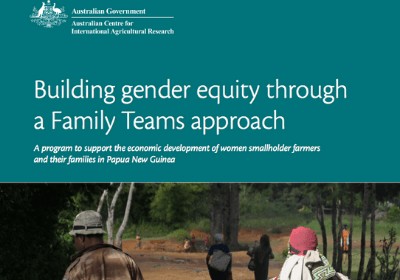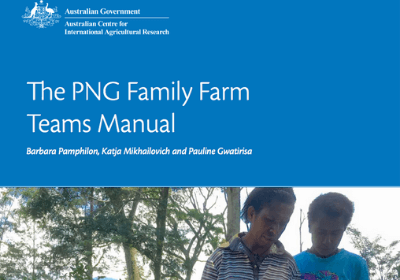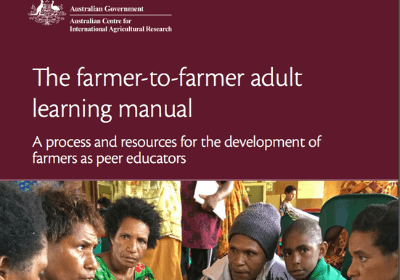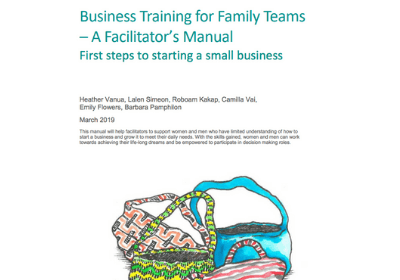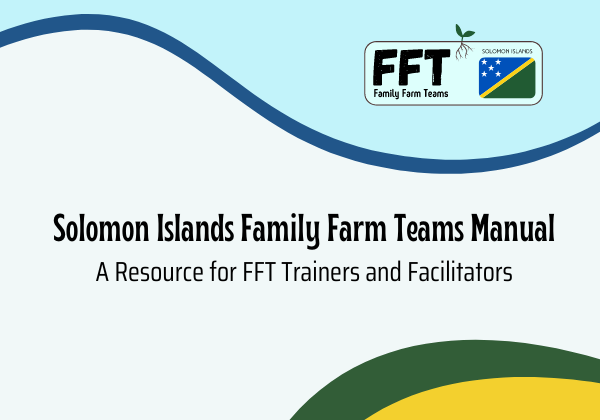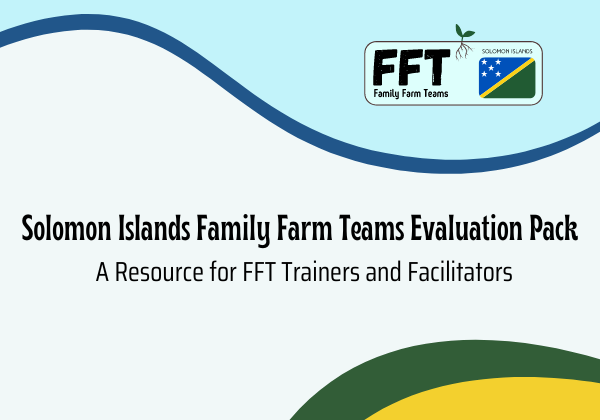Family Farm Teams Training: Accreditation & Manuals
Family Farm Teams Accredited Trainers
A list of trainers currently accredited and approved as Family Farm Teams trainers can be found here.
Training
Family Farm Teams Training – module summary
The Family Farm Teams training is provided to local project/community leaders and selected farming family heads/pairs (one woman, one man) who are interested in becoming part of their village community education team. All of the training is underpinned by a gender inclusion approach; that is, the training is offered to both women and men in a family so that they learn together and can plan their family farm changes together. Importantly, they also become local role models and change agents.
There are four modules which can be delivered over three or four days, or in a series of half days or evenings:
- Module 1: Working as a family team for family goals
This workshop introduces the concept of a family team as an effective and inclusive way to work as a smallholder family. Family heads engage in a range of activities that map their current division of labour and then together consider better ways to work as a family. The family heads also look at possible family goals and then, working together, determine farming, financial, and general family goals.
- Module 2: Planning your family farm as a family team
In this activity, family heads/teams work together to map their gardens/plots in order to identify their agricultural activities and space allocation, water sources, housing, animal shelters and other assets as well as noting terrain and travel time. They are introduced to the idea of a seasonal calendar that will enable them to plan their agricultural activities across the year in a way that will enable regular income and to budget for their family, cultural and further agricultural needs. They then draw how they would like to see their farm in five years.
- Module 3: Feeding your family team
This workshop uses group activities to enable participants to identify the range of foods that can be grown in their area and the ones they buy. The group works together to sort foods into three food groups (energy, body building, health protection) and to consider how to plan family meals covering all food groups, across a 24-hour period. This enables the group to see the value of their local produce and the savings from growing their own food. This activity is also undertaken for times of drought to enable families to have greater knowledge around adapting in times of food shortage. To ensure family nutrition, the concepts of a backyard garden - the FAITH (Food Always In The Home) garden, and ‘rainbow’ meals are introduced.
- Module 4: Communicating and decision-making as a family team
This workshop enables family heads to explore communication issues within the family and to consider the importance of shared decision-making, especially in the areas of family farm activities and financial decision-making. The activities cover skills and attitudes as well as exploring the cultural and gender dimensions of communication.
A series of children’s books—the Maria’s family books—and three videos have also been developed to support the FFT training modules. They can be found here.
Training Manuals
![]()
This work is licensed under a Creative Commons Attribution-NonCommercial-ShareAlike 4.0 International License.


